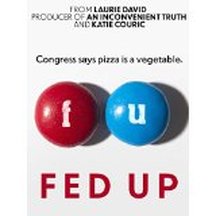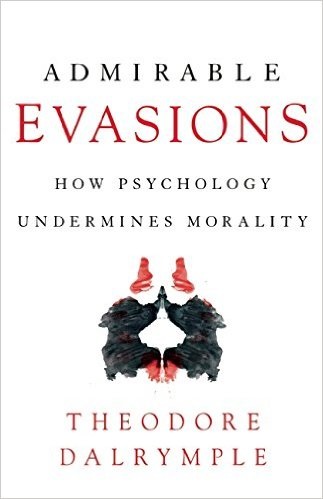
In other words, in order to exert the effort to accomplish a goal, do you always have to give something up? The short answer is yes. If I do A, I can’t at one and the same time do B. I have to give B up. I can’t at one and the same time waste my time reading about the JonBenet Ramsey murder case and also do something productive. (I don’t know exactly why I’ve recently allowed myself to get drawn into that horrible quagmire all over again, but once I say to myself, “I’ll just google this really quick and see if there’s anything new” I might as well shoot myself in the foot and be done with it.)
We need discipline only when we have conflicting goals; the essence of discipline is that we’re making a choice. It takes no discipline to run from a tornado. Choices don’t have to be painful, though. You shouldn’t think of them as being in the same category as that of Travis Bickle’s holding his fist over the gas burner in
Taxi Driver. We can also set up our lives so that the potential for making the wrong choice is minimized. An acquaintance once said, “I tell myself that I deserve a candy bar when I stop at the gas station.” She was explaining why she couldn’t lose weight–not that anyone had asked her about it. She obviously felt very defensive about her lack of success in this area. But look at how she was shooting herself in
her foot. Even though this was many years ago, paying by credit card at the pump was doable. They didn’t have candy bars right next to the windshield-cleaning tools. You had to go inside to be exposed to the KitKats. So she shouldn’t have gone in there! She needed to change her thoughts (I “deserve” a candy bar), but she could also help herself by changing her actions.
TIME magazine published an article in 2013 on the subject of self-discipline, drawing on research done by the Association for Psychological Science. Are self-disciplined people happier, or do they tend to be joyless killjoys? And of course they’re happier. We all know that. We all know that when we have conflicting goals, 99% of the time a short-term indulgence vs. a long-term accomplishment, that we will not be happy if we give in to the short-term indulgence. I’ve been struggling with this issue for ages. Over 25 years ago I wrote:
So what does this magic word “discipline” actually mean? It means that, when you have it, you do what you ought to do , and nut just what you want to do. “How dreary!” I hear you say. Well, not really. It is actually the chronically undisciplined person’s life that is dreary. She is constantly nagged by thoughts of what ought to be done and isn’t; she’s caught at the last minute with preparations unmade; her life tends to be one long frantic game of catchup. The disciplined person, on the other hand, has a far more serene life . . . Her preparations are made. She has a tremendous feeling of accomplishment at the end of most days. Those frantic zero-hour nervous breakdowns don’t happen to her. . . . I have found that one of the most helpful things I can do on a purely human level to develop discipline is to visualize as intensely and clearly as I can what the consequences will be if I don’t do what I’m supposed to do, vs. what will happen if I do it.
Hmmm. Pretty good advice. Trying to look back on the choice from the future as I make the choice in the present. Mental gymnastics of a sort, or perhaps more like mental time travel. Whatever it is, I need to do it before plugging in that search term!
See the complete article on self-discipline and happiness here.
 We often tend to think of luxury in terms of being waited on or having others do work we find irksome. I’ll think sometimes of how nice it would be to have someone in to clean this house so that I wouldn’t have to worry about it and could just get on with my writing. I know two excellent cleaning women whom I like and respect very much and who could probably use the work. We can afford to pay them. That’s not the issue. But every time I get close to deciding to hire them I pull back. Cleaning house is excellent exercise; no one can sit at a computer for too long without needing to get up and do something else. (Well, no one except my son, whose computer-sitting-tolerance seems to be boundless.) Plus, as we all know if we’ve ever hired anyone to do something, handing the job over to an employee includes the dreaded idea of management. What do you want him to do? How do you want it done? How much time should it take? How much will you pay?
We often tend to think of luxury in terms of being waited on or having others do work we find irksome. I’ll think sometimes of how nice it would be to have someone in to clean this house so that I wouldn’t have to worry about it and could just get on with my writing. I know two excellent cleaning women whom I like and respect very much and who could probably use the work. We can afford to pay them. That’s not the issue. But every time I get close to deciding to hire them I pull back. Cleaning house is excellent exercise; no one can sit at a computer for too long without needing to get up and do something else. (Well, no one except my son, whose computer-sitting-tolerance seems to be boundless.) Plus, as we all know if we’ve ever hired anyone to do something, handing the job over to an employee includes the dreaded idea of management. What do you want him to do? How do you want it done? How much time should it take? How much will you pay?
 We often tend to think of luxury in terms of being waited on or having others do work we find irksome. I’ll think sometimes of how nice it would be to have someone in to clean this house so that I wouldn’t have to worry about it and could just get on with my writing. I know two excellent cleaning women whom I like and respect very much and who could probably use the work. We can afford to pay them. That’s not the issue. But every time I get close to deciding to hire them I pull back. Cleaning house is excellent exercise; no one can sit at a computer for too long without needing to get up and do something else. (Well, no one except my son, whose computer-sitting-tolerance seems to be boundless.) Plus, as we all know if we’ve ever hired anyone to do something, handing the job over to an employee includes the dreaded idea of management. What do you want him to do? How do you want it done? How much time should it take? How much will you pay?
We often tend to think of luxury in terms of being waited on or having others do work we find irksome. I’ll think sometimes of how nice it would be to have someone in to clean this house so that I wouldn’t have to worry about it and could just get on with my writing. I know two excellent cleaning women whom I like and respect very much and who could probably use the work. We can afford to pay them. That’s not the issue. But every time I get close to deciding to hire them I pull back. Cleaning house is excellent exercise; no one can sit at a computer for too long without needing to get up and do something else. (Well, no one except my son, whose computer-sitting-tolerance seems to be boundless.) Plus, as we all know if we’ve ever hired anyone to do something, handing the job over to an employee includes the dreaded idea of management. What do you want him to do? How do you want it done? How much time should it take? How much will you pay?

 And it also saved me $300. Not bad for around three hour’s work, or $100 an hour. Hey, that’s lawyer pay!
And it also saved me $300. Not bad for around three hour’s work, or $100 an hour. Hey, that’s lawyer pay!
 You’d think, wouldn’t you, that by this time in my life I would have figured out some fast, easy organizational tools and habits to use when traveling. We usually take one big trip a year and often do some shorter ones. What has seemed to happen in the past is that the trips are spaced out just enough that I forget how much of a pain it is not to have a system and end up digging around in my suitcase every morning to find what I need. Also, I start out with all these nice clean clothes neatly folded up, but then as I wear them they become dirty clothes, and what is one to do with those? So as the trip wears on there’s a tangle of clothes and a tangle of items, and every morning is just a real hassle.
You’d think, wouldn’t you, that by this time in my life I would have figured out some fast, easy organizational tools and habits to use when traveling. We usually take one big trip a year and often do some shorter ones. What has seemed to happen in the past is that the trips are spaced out just enough that I forget how much of a pain it is not to have a system and end up digging around in my suitcase every morning to find what I need. Also, I start out with all these nice clean clothes neatly folded up, but then as I wear them they become dirty clothes, and what is one to do with those? So as the trip wears on there’s a tangle of clothes and a tangle of items, and every morning is just a real hassle.

 Burn and wear out for Thee. Don’t let me rust, or my life be a failure, dear Lord, for Thee.” Bessie F. Hatcher, 1957.
Burn and wear out for Thee. Don’t let me rust, or my life be a failure, dear Lord, for Thee.” Bessie F. Hatcher, 1957.


 In other words, in order to exert the effort to accomplish a goal, do you always have to give something up? The short answer is yes. If I do A, I can’t at one and the same time do B. I have to give B up. I can’t at one and the same time waste my time reading about the JonBenet Ramsey murder case and also do something productive. (I don’t know exactly why I’ve recently allowed myself to get drawn into that horrible quagmire all over again, but once I say to myself, “I’ll just google this really quick and see if there’s anything new” I might as well shoot myself in the foot and be done with it.)
In other words, in order to exert the effort to accomplish a goal, do you always have to give something up? The short answer is yes. If I do A, I can’t at one and the same time do B. I have to give B up. I can’t at one and the same time waste my time reading about the JonBenet Ramsey murder case and also do something productive. (I don’t know exactly why I’ve recently allowed myself to get drawn into that horrible quagmire all over again, but once I say to myself, “I’ll just google this really quick and see if there’s anything new” I might as well shoot myself in the foot and be done with it.)